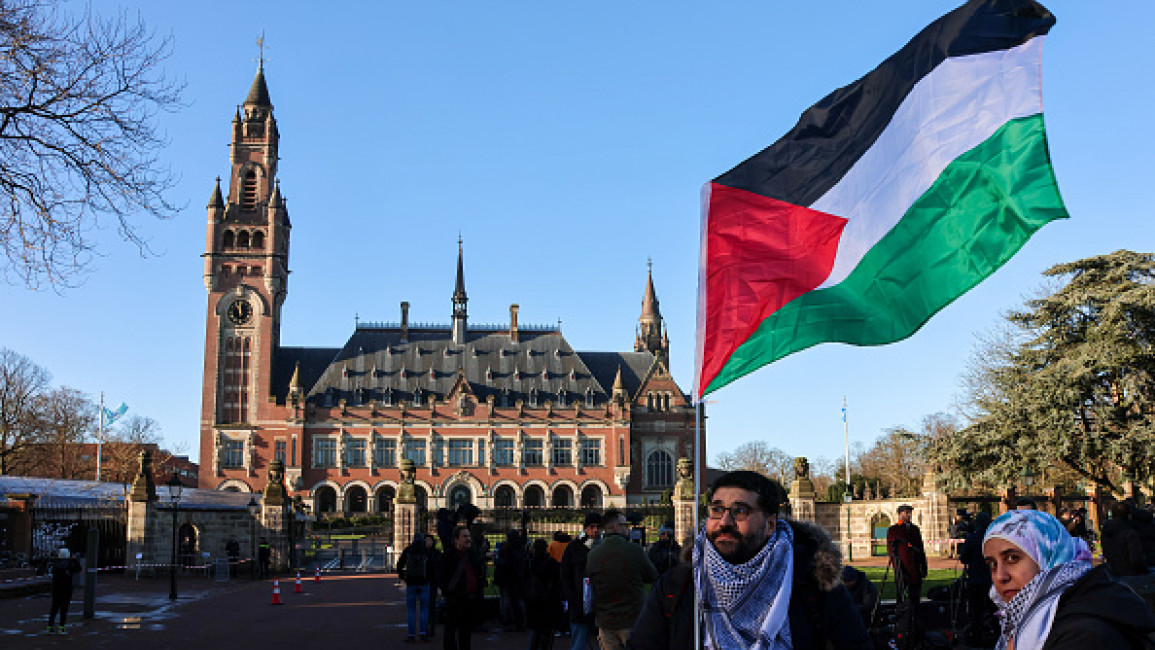ICJ says Israel must prevent genocidal acts but stops short of 'immediate ceasefire' call
The International Court of Justice (ICJ) in The Hague on Friday ordered Israel to take all possible measures to stop the killing of Palestinians in Gaza, but stopped short of calling for an immediate ceasefire.
Israel was told to ensure it does not commit genocide, punish those who incite to genocide, and prevent the destruction of evidence in its deadly military offensive in Gaza, in accordance with Article II of the 1948 Genocide Convention.
The court's orders, read out by Judge Joan Donoghue, particularly stressed that Israel must prevent the killing of Palestinians, the causing of serious bodily or mental harm, the deliberate infliction of conditions of life calculated to bring about its physical destruction in whole or in part, as well as the imposition of measures intended to prevent births.
The court demanded Israel to facilitate the flow of "urgently needed" humanitarian aid into the war-hit territory, with Gaza on the verge of famine and major outbreaks of disease.
It also said that Israel must take "immediate and effective measures to enable the provision of urgently needed basic services and humanitarian assistance to address the adverse conditions of life faced by Palestinians."
Israel must report to the court within a month regarding Friday's ruling and the genocide case filed against it.
The ICJ failed to order a ceasefire for Gaza, where over 26,000 Palestinians - including women and children - have been killed.
The World Court said it was not considering genocide rulings as that process could take years.
South Africa filed a case in December that accused Israel of genocide against the Palestinian people - particularly in Gaza, where Israel launched an assault and siege on the territory on 7 October.
Pretoria accused Tel Aviv of carrying out a genocide intended to cause the "destruction of a substantial part of the Palestinian national, racial and ethnical group."
Public hearings in which Israel and South Africa pled their cases were held earlier this month.
The Palestinian Authority released a statement saying it "welcomed the provisional measures ordered by the ICJ", and went on to call all states, including Israel, to ensure that the measures are implemented.
"The ICJ order is an important reminder that no state is above the law. It should serve as a wake-up call for Israel and actors who enabled its entrenched impunity," Foreign Affairs Minister Riad al-Malki said.
South Africa hailed the ruling, and said it hopes that Israel will comply with Friday's World Court order that it must take steps to prevent acts of genocide as the deadly wages, Justice Minister Ronald Lamola said in an interview.
"Today marks a decisive victory for the international rule of law and a significant milestone in the search for justice for the Palestinian people," the foreign ministry said.
Israeli Prime Minister Benjamin Netanyahu slammed the outcome, calling it "outrageous" while emphasising on Tel Aviv's so-called "right to defend itself".
Although its rulings are legally binding, it has no mechanism to enforce them and they are sometimes completely ignored - it ordered Russia to stop its invasion of Ukraine, but the conflict in eastern Europe remains ongoing after almost two years.



